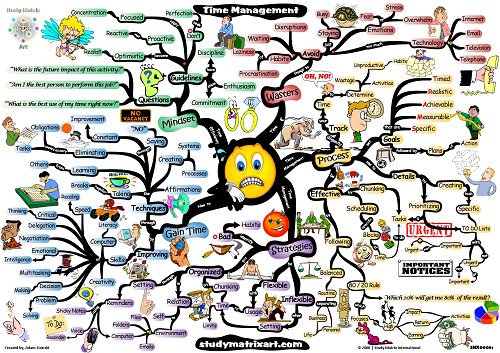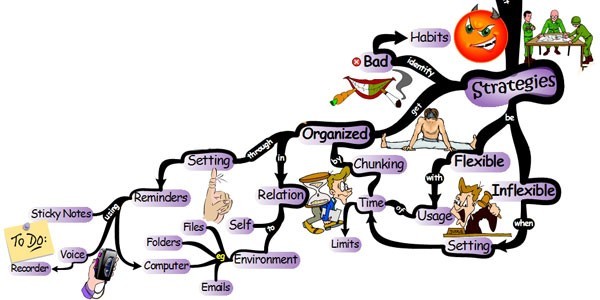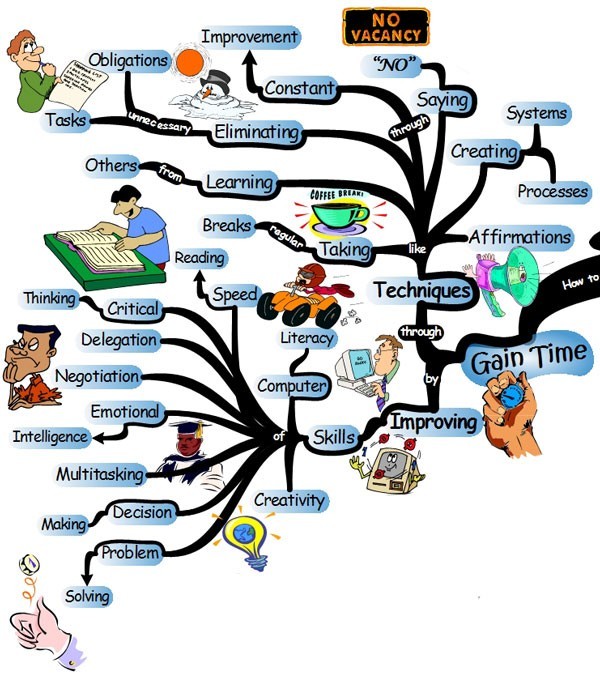
hmm..great merging like Ghajini Style..
hey ,what's this?
it is very interesting.....................i can't understand whether it is time mgmt or time waste....................
what is this
ise dekh kr time manage kiya ti dimak manage nhi hoga yar

oh!! ok these was all about the IQ Matrix art pic,
let me explain..........................
The IQ Matrix Art is dedicated towards helping you improve and Accelerate Your Human Potential through a potent combination of Mind Mapping and Life Coaching principles. These presents you with simple yet effective processes that will help you to Accelerate your Learning Ability and therefore gain the most from your business, academic, sports, career, and life accomplishments. This translates to a wide variety of topics such as creativity, problem-solving, visual thinking, memory, mind mapping and self-mastery. These is really worth it please read........................
Bottom of Form
Time Management:
In today’s day and age we can easily become overwhelmed with information, people and tasks that sometimes tend to get the best of us. Without effective knowledge, strategies and tools, it is easy to see how too many small things can lead to so much stress and discomfort for people. It is this feeling of overwhelm – of not feeling capable of being able to deal with many tasks or situations at one time – that leads to chronic stress and fatigue. However, rest assured there is a way that we can effectively take charge and gain back control over our lives. The secret lies in learning simple yet effective time management skills that will get you thinking about the process of time in a unique and potentially unexpected way.
When it comes to time management the process is pretty straightforward, however it may take a little patience and some effort – at first – before it eventually becomes ingrained into our psyche as a new habit. Here are some suggestions to get you started along your journey towards becoming a better time manager:
The only way to improve your time management skills is to learn from – and understand – your current time management habits. This process simply involves carrying around a notepad, and jotting down what you are doing every 15 minutes.
After 1 week, you should have a good and thorough understanding where you are spending your time and where you are wasting it. Do not move onto any other time management strategies until you successfully undertake this step. After 1 week, analyze your time logs and determine where you feel you could be more productive.
Once you have a clear understanding of your time management habits, you are now ready to setup the bigger picture by setting and writing down S.M.A.R.T. Goals.
Your goals must be very specific in terms of what you would like to accomplish.
Your goals must have a time measure, or in other words a date of when they will be accomplished.
Your goals must be achievable given the resources you have available to you.
Your goals must be realistic given the time frame you have laid out to accomplish them.
Your goals must be timed, meaning that they must be broken down into smaller short-term objectives that lead to medium and long-term goals. Through an understanding of the bigger picture you are working towards, you will be better equipped to more effectively manage your time.
Whenever goals are set, a plan of action must immediately follow. Create a quick writeup and general action plan of how you will go about achieving these goals.
Now take your Plan of Action and convert it into a Master TO DO List of all the things that you must do in order to achieve this bigger picture.
Now that you have your Master TO DO List written out, the next step is to create a Daily TO DO List where you write down and specify 6 key important tasks that you will do today. As a general rule of thumb you should be spending your time on Important rather than Urgent tasks.
Many of us spend so much time during the day trying to put out fires. We deal with so many low important urgent tasks and activities that keep us busy and moving – then at the end of the day we wonder how in the world we accomplished so little. Step out of this habit trap today and begin focusing on just the important tasks before they become urgent and potentially stress inducing.
By grouping your tasks into similar categories of activities you will become far more productive and time efficient. For instance, make all your telephone calls within a ONE block hour, and respond to all your emails during only specific times of the day. You can also group stationary activities (when you are at your desk) together with other activities that don’t require you to move around your office. Once your “chunk time” is over, simply move onto something else, without making any further telephone calls or writing up emails.
When setting tasks, be sure to specify how much time you will be spending on each of these activities. If you do not specify a time, you may become caught up in wasting time on activities that are simply taking up too much time. Every task and activity must be set around a realistic and achievable time frame. Do whatever you can to accomplish this activity within the time frame you have set. And when time has lapsed, immediately move onto something else. Don’t allow perfection to sabotage your success as an efficient and proficient time manager.
The 80 / 20 Rule states that 80% of your efforts will bring about only 20% of the results. On the flip-side, 20% of your efforts will bring about 80% of your results. Knowing this, identify the highest value activities that will have the largest impact on your success at the end of the day, week, month and year. Focus on accomplishing these tasks and activities first, before moving onto the 80% of activities that will only bring about 20% of the result. The 80 / 20 Rule is a large in-depth topic that will become a future Mind Map.
Finally, establish a daily, weekly and monthly routine schedule that will keep you moving forward and focusing on your most important goals, tasks and activities. Routines are excellent ways of forming new and empowering habits that will help you become an effective time manager. However, be sure that at all costs you keep your routine balanced personally and professionally.

When it comes to time management, there are some simple strategies that we can apply into our daily routine that will instantly make us more productive and efficient. Here are some suggestions to get you started:
Know and understand that the day will rarely go as you had planned. Emergencies will pop up and unexpected events may change your course and direction. You must be prepared for situations like these by creating a “Buffer” system within your schedule. This “Buffer” will allow you time throughout your day to deal with unexpected events and circumstances. However, be very careful not to become lost within these scenarios.
Set a time limit for yourself in respect to how much time you will spend in putting out these fires, and then return back to your most important activities without a second thought. Just keep focusing on the bigger picture and keep moving forward with what is most important in respect to your end result.
While it is important to be flexible with your schedule and routine, it is however critical that you are inflexible when it comes to setting time limits for specific tasks and activities. Determine how much time you will spend on important activities and stick with them until time has elapsed (unless the activity or task is finished ahead of time of course). By being inflexible with setting your time, you will become more effective and efficient throughout your day.
Get yourself organized by starting with your thoughts. If you are finding that there is just too much information circulating around your mind at one time, than develop a strategy of writing your thoughts out on paper and clearing your head from all these heavy weights. Once your plans, tasks and ideas are on paper, your head will be much clearer and more organized.
Do you waste many precious minutes of your day simply looking for things? If you answered YES, than you know what you must do. Simply organize your files and folders in ways that will make things quick and easy to find at a moments notice.
Another area you should take a look at is your computer and emails. If you are spending too much time browsing through icons, folders and files, trying to look for something that should be easy to find, than you might want to look at rearranging your computer folder system and email management process.
Remember, the initial process of organizing your environment is the easy part. It is the ongoing process of keeping it organized that may be difficult for the unprepared mind. As a simple tip, just follow the rule of putting things away where you found them, or storing things immediately when you receive them. The moment you leave one piece of paper lying around “where it don’t belong”, is the moment when you start to lose control.
Two simple ways to remind yourself about task and activities is to use Sticky Notes or to carry around a Voice Recorder. Both are proven ways of capturing quick ideas that you can later transfer into your Daily TO DO List.
As you are moving through the process of organizing yourself and your environment, keep a watchful eye on “Time Sapping” habits that may sabotage your progress and success. Identify them and work on strategies to rid yourself of these nasty habits once and for all.

It is said that no matter how busy we may appear to be, that we can all gain time throughout our day by either improving certain skill-sets or through applying simple techniques and strategies that will make us more efficient and proficient when it comes to effectively managing our time. Here are some suggestions that will get you thinking in the right direction:
The following are a set of skills we must all work on improving throughout our days in order to become a far more effective and efficient time manager.
Improve your Computer Literacy by learning how to use certain pieces of software that will cut down the time, energy and effort it takes you to undertake specific tasks and activities. Even learning simple program shortcuts can dramatically cut down the time it takes you to write a report or prepare a presentation. Look online for beginner tutorials or find a workshop or course within your area.
Learning to be creative will allow you to develop ingenious and unique ideas on how to save time and become more productive throughout your day.
Having the ability to think critically about situations will allow you to spend less time on the process of thinking and more time on doing and implementing.
Learning how to delegate work efficiently and effectively will save you an ample amount of time. Having another pair of hands undertaking the tasks and activities that you would normally spend time on, clearly frees you up to focus on other matters. The opportunity cost of paying someone to do something could well be the catalyst that makes you both more efficient and proficient. This will become a future Mind Map.
Sometimes because we cannot agree with others about how things should be, it naturally draws time away from more important matters. By learning how to negotiate more effectively you will reach a satisfactory agreement much faster, which will therefore allow you time to focus on other matters. This will become a future Mind Map.
Whenever our emotions tend to get the better of us, we lose time, and become very unproductive in the process. Emotional Intelligence involves the process of taking proactive control of our emotions and projecting them in ways that will boost our productivity and performance. This will become a future Mind Map.
Spend time grouping tasks and activities together, and work on developing and improving your multitasking abilities. As a cautionary note – on very important tasks that require a lot of thought and attention it is suggested that you do not multi-task.
The faster you are able to reach a definitive decision, the more time you will save. This will become a future Mind Map.
The faster you learn to read and absorb information the more information you will cover in less time.
The following is a list of just a few techniques you can utilize on a daily basis to help you become a more efficient and effective time manager.
Simple affirmations like “I am becoming more efficient and proficient with my time each and every day” – will keep you on the right track towards your time management goals.
Your body and mind need regular breaks throughout the day. On the surface working 5 hours straight might seem as though it will result in more productivity. However, we must understand that spending long hours of time on a certain activity fatigues the brain and stumps creativity and a person’s problem solving abilities. By taking regular breaks you refresh the mind, clarify the thought processes, and improve the creativity and flow of information.
By simply saying “NO” to people’s requests for help and assistance, you will avoid committing yourself to something that will eat up your time and make you feel guilty in the process.
Everything that you do can be created into an effective system or process that could dramatically shorten the time the task or activity normally takes to perform. Commit yourself towards thinking in SYSTEMS. Simply ask yourself.
How can I simplify this activity into a system or process that will save me time, energy, money and effort?
Sometimes we simply do not have time because we spend too much time on unnecessary and low value tasks, activities or obligations that we have tied ourselves down to. Commit yourself today and make a decision to eliminate these obligations, tasks and activities once and for all.
Everything can and should always be improved upon on a daily basis. No matter what kind of task, activity or process you are undertaking, everything can be improved if you continuously feed your mind with questions that will expand your thinking and awareness about the way you are going about your daily obligations. Just learn to ask yourself the right questions and you will be rewarded with answers that will save you both time and money.
Follow this link for more information: https://iqmatrix.com/
Your are not logged in . Please login to post replies
Click here to Login / Register

 CAclubindia
CAclubindia
India's largest network for
finance professionals


